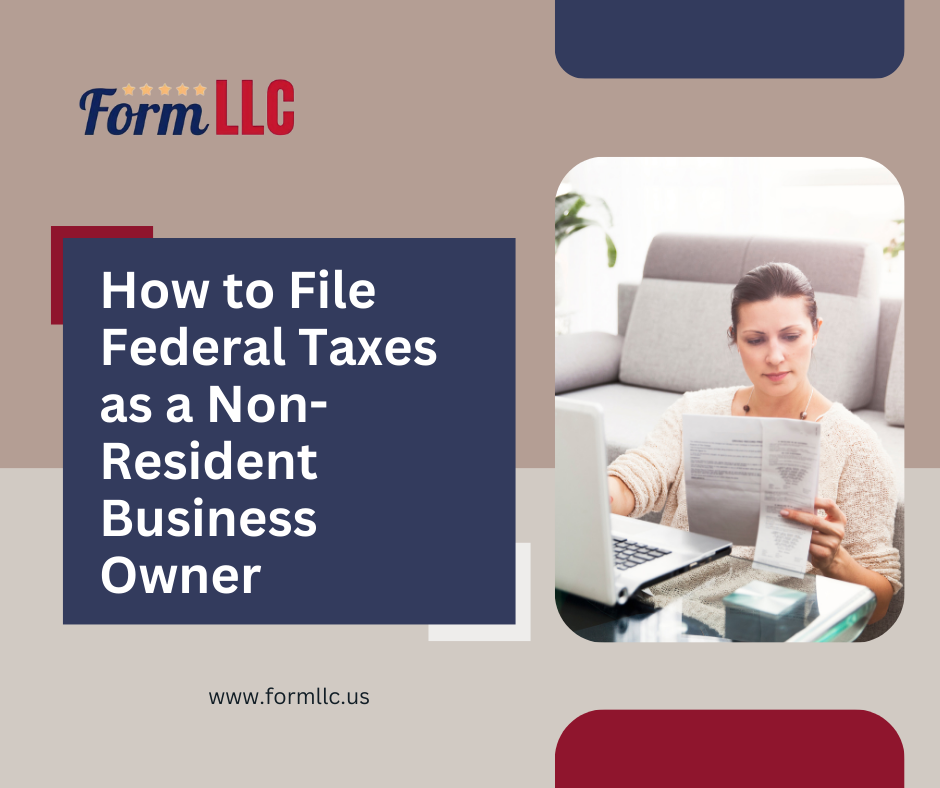
Navigating the United States tax gadget as a non-resident commercial enterprise proprietor can feel overwhelming. The regulations are distinctive from those that practice to US residents, and understanding the submitting method is key to staying compliant and averting steeply-priced consequences. Here’s a sincere manual on the way to file federal taxes as a non-resident commercial enterprise owner.
1. Determine Your Tax Filing Status
As a non-resident, your tax responsibilities depend upon whether your enterprise generates profits in the United States. Non-resident business owners are commonly required to document US taxes if they have US-sourced profits or income that is correctly related with a US alternate or commercial enterprise.
For non-residents, the number one tax shape to document is Form 1040-NR. This shape is used to record profits earned from sources inside the US and to calculate your tax legal responsibility on that income.
2. Understand Effectively Connected Income (ECI)
When submitting federal taxes, non-resident commercial enterprise owners need to differentiate among US-sourced profits and earnings this is successfully related to a US change or enterprise. The IRS requires that non-resident proprietors pay taxes on income that is taken into consideration ECI, which includes any income earned through active participation in a US exchange or business.
For example, if you own an LLC that sells goods inside the US or affords offerings to US clients, that earnings is considered ECI and ought to be suggested in your taxes. However, passive income, inclusive of dividends or interest, may be taxed in a different way relying on tax treaties with your house united states.
3. File Form 1040-NR
Non-resident business owners must file Form 1040-NR, which is the US Nonresident Alien Income Tax Return. Here’s how to navigate it:
Credits and Exemptions: Tax treaties between the US and your home country may allow for credits or exemptions that reduce your tax liability. Be sure to research these options or consult with a tax professional to take advantage of any applicable treaties.
Income: Report all US-sourced income that is effectively connected with your US trade or business. This includes earnings from any business activities conducted within the US.
Deductions: You may be able to claim deductions related to your business expenses, such as travel costs, office supplies, and advertising, as long as they are directly related to your US-based business activities.
4. Filing for Foreign-Owned Single-Member LLCs
If you very own a single-member LLC as a non-resident, you could additionally want to file Form 5472 in addition to Form 1040-NR. Form 5472 is required when a non-resident character owns a single-member LLC and has reportable transactions with foreign proprietors or associated events.
This form need to be filed on time, and failing to achieve this can bring about large penalties. Make certain you apprehend whether your enterprise meets the requirements for filing Form 5472, and include it to your annual tax submitting.
5. Withholding Taxes
Non-resident business owners might be subject to withholding taxes on certain types of US income, such as interest, dividends, or royalties. The default withholding tax rate for non-residents is 30%, but tax treaties between the US and other countries can often lower this rate.
You can report this withheld income on your Form 1040-NR to potentially claim a refund or reduce your overall tax liability, depending on the treaty and your individual situation.
6. Stay on Top of Deadlines
Tax cut-off dates for non-resident business proprietors are generally similar to the ones for US residents. The tax filing deadline for most non-residents is April 15 of every 12 months, even though extensions may be requested if you want extra time to report.
However, if you are required to report Form 5472, the closing date is aligned with the due date to your LLC’s tax return, that is typically April 15 as properly, with a likely extension till October 15 if wished.
7. Seek Professional Help
Given the complexities of submitting taxes as a non-resident enterprise owner, it’s miles tremendously advocated to are looking for the recommendation of a tax professional who makes a speciality of non-resident taxation. They can help ensure which you are assembly all your federal tax responsibilities and taking gain of any available tax treaty advantages.
Conclusion
Filing federal taxes as a non-resident enterprise owner calls for cautious attention to detail and a stable knowledge of the way US tax law applies on your precise situation. By submitting Form 1040-NR, understanding successfully linked earnings, and preserving up with tax deadlines, you may hold compliance and keep away from needless consequences. For steerage and assist together with your LLC and tax obligations, feel free to visit my private website at Tousif Akram or discover our services at FormLLC.